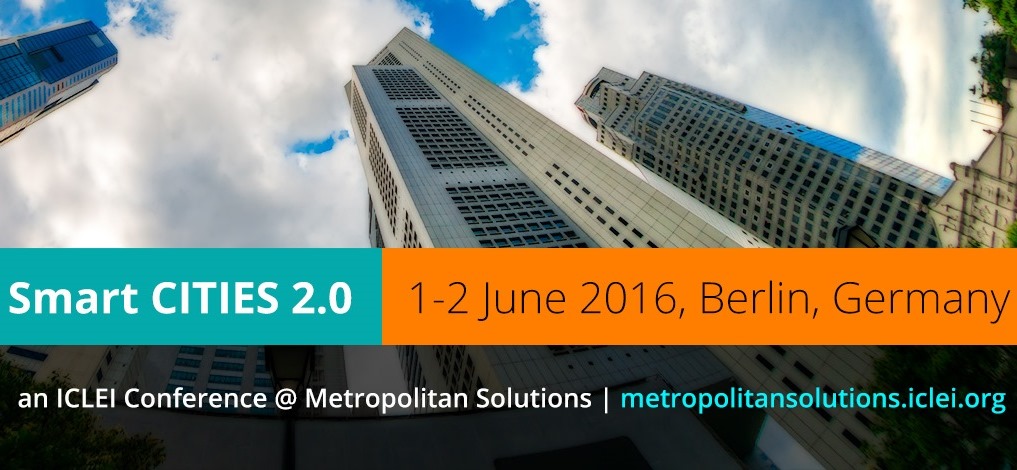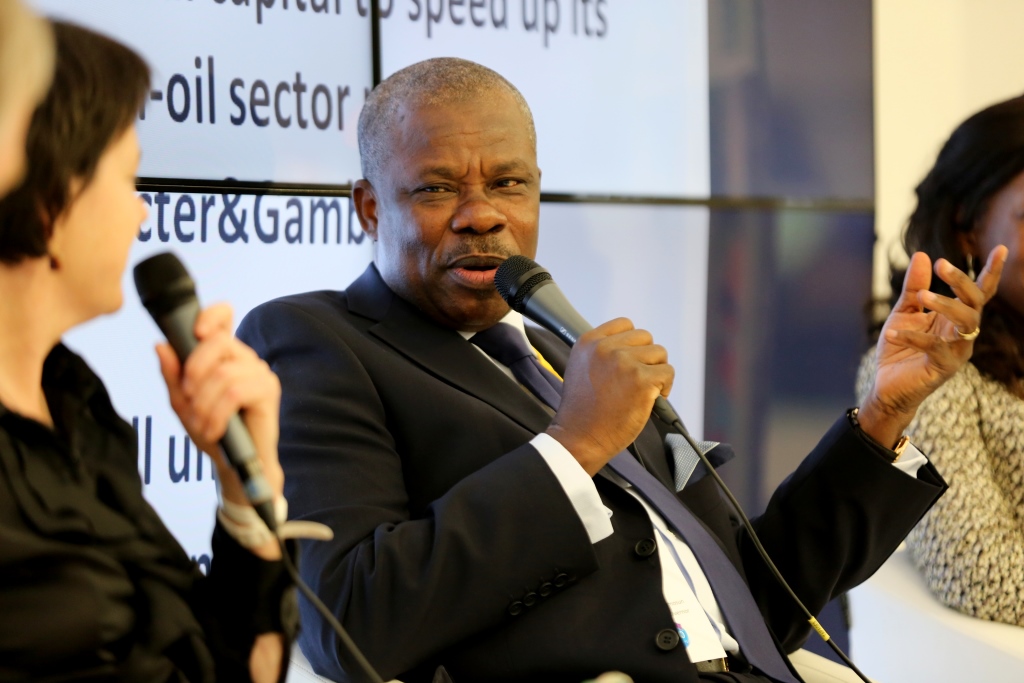Moving from planning to action. How ICLEI is helping to accelerate the transition to net zero
“ICLEI has been tackling climate change for more than 30 years and when we started, it was certainly not a hot topic, but today it is a critical topic and it is literally life-defining for many people,” observed Maryke van Staden at last week’s ICLEI World Congress 2021-22.
She went on to note that in light of the severity of our current situation, we now need to “pick up the pace with the climate emergency… moving from planning to action,” that includes opening up access to adequate financing to help fund climate change mitigation, as well as adaptation and resilience efforts at the local level.
With this brief introduction, Maryke van Staden, Director of ICLEI’s carbonn Climate Center set the tone for discussion in the ensuing session entitled Towards Low Emission and Climate Neutral Development for a Sustainable Urban World.
Shinjirō Koizumi, Japan’s Minister of the Environment and Minister in charge of Climate Change kicked off the session by, explaining the remarkable “de-carbonization domino effect” that has taken place in his country within a relatively short period of time. “When I assumed this position as a minister in 2019, only four cities had committed to zero carbon by 2050… since then I have encouraged more Japanese cities to join and now the number tops 366 in total, representing more than 100 million people,” he said. As testimony to this success, the Ministry of Environment has even set up a web page 2050 Zero Carbon Cities in Japan, listing the participating municipalities.
Reflecting on this new sense of commitment to fighting global warming not just in Japan but now in cities hailing from over 100 countries around the world, Koizumi stated with pride that “the zero-carbon city has become a movement.” However, he said, “it does not mean we have the next 30 years to act. The next five years are crucial… to create a leading model of de-carbonization.”
In a speech that followed Minister Koizumi, Mayor Frank Cownie of Des Moines, USA (also ICLEI’s newly elected President), commended Japan on its leadership role in promoting multi-level dialogue and cooperation in the development of climate plans. He contrasted the current situation with previous gaps in communication between local and national government bodies in the years leading up to the 2015 Paris Summit. Back then, “there was no consultation with local governments… so we had to reach out to heads of state and let them know that we’re where things happen,” Cownie recalled, noting that it wasn’t until two years after the Paris Agreement through the process called the Talanoa Dialogue that “we convinced national governments to agree that the review of their first national plans should take place at the local level at every city around the world.”
Doing their own part to create a “decarbonization domino effect” within the U.S., Cownie said that Des Moines has become a champion of sustainability, with the goal of having 100 percent renewable electricity by 2035 and net-zero greenhouse gases by 2050. “It signals our commitment to a clean energy future and ensures that all of our residents are going to have access to affordable and reliable sustainable energy.”
In the spirit of cultivating both a peer to peer and multi-level dialogue, he said “we’re working with the United States Conference of Mayors, to try to bring a local government perspective” leading up to the Biden administration announcing a new pledge to reduce greenhouse gases this week as part of the U.S. led climate summit taking place April 22-23. “We’ve met with Secretary Kerry (the U.S. Climate Envoy) on a number of occasions and… we’re very hopeful that their NDCs are going to be aggressive and ambitious.” As well he said, “we’ve asked for a national climate action task force which includes local governments.”
Building on the theme of participatory action at all levels, Mayor Katja Dörner of the City of Bonn referenced the Bonn4Future initiative whereby “our goal is to reach out to as many citizens and stakeholders as possible” as part of efforts to enable the city to become climate neutral by 2035.
Meanwhile, Malmö Councillor Simon Chrisander shared the progress ICLEI’s World Congress host city has made with the green bond funding program it has established in partnership with some of the country’s top banking institutions. “So far we’ve issued around 600 million Euros worth of bonds,” he said, tied to such critical investments as green and energy-efficient buildings. “One example I’m particularly proud of is a portable parking garage that can be deconstructed and reinstalled in another area” once car usage in the current location decreases, which is a trend taking place throughout the city as walking, cycling and public transportation become increasingly popular. He estimated that avoiding the construction of just one more parking garage using this modular approach will eliminate the equivalent of 460 tonnes of CO2 emissions.
Chrisander’s presentation provided a fitting segue into the second half of the discussion, which focused on ICLEI’s support programs that are already in place to help cities fast track the “planning to action” transition.
Rohit Sen, Head of Climate and Energy Action, gave a high-level overview of ICLEI’s GreenClimateCities Program, which he said involves four simple steps: Commit, Plan, Act, and Report. The program is tailor-made for subnational governments and “supports integrated climate action, adaptation, resilience, and mitigation to achieve climate neutrality.”
Sen was then followed by Cesar Carreño, ICLEI’s Head of Climate Data, who told attendees about what he described as one of his favorite initiatives embedded in the GreenClimateCities Program, known as the Climate Neutrality Framework. The framework is essentially a plan to accelerate climate action tied to such end goals as improving air quality, protecting biodiversity, supporting a clean energy transition, and promoting a circular economy via ICLEI’s Five Pathways. “For us, it’s important not only to work on mitigation but also to have an integrated, holistic approach.”
During his presentation, Carreño openly encouraged ICLEI members to get involved in this program in order to meet their climate goals. Referencing the three pillars of climate neutrality within the program’s framework, he advised that “first you will have to reduce the greenhouse gases that you produce in the city. Second, you will have to divest, repurpose and reinvest as many financial resources as possible. And third, you will need to offset and compensate the greenhouse gases.”
Achieving these goals will require action across multiple sectors, including energy, waste, and buildings. ICLEI’s guidance also recognizes that “different cities in different parts of the world will have different challenges.”
Member cities progressing along this path may also wish to get involved in the Cities Race to Zero campaign Carreño said, which ICLEI belongs to along with other networks, including C40 Cities and the Global Covenant of Mayors. Cities wishing to join this initiative must agree to goals that include pledging to reach net-zero emissions by 2040 or sooner.
Concluding the high-level review of program support for ICLEI Members, Dr. Eszter Mogyorósy, Head of Innovative Finance shed light on the Transformative Action Plan (TAP) which centers on getting financing to scale up local climate action.
“TAP is a pipeline through which we mobilize projects annually… we screen those projects… and after that, help with further project preparation and then also help them to connect with potential financial and technical partners,” she said. “So as of today, we have 70 projects in the pipeline with 2.6 billion Euro investment potential… and since 2015 when TAP was launched, at least 25 projects have been financed and implemented.”
In wrapping up a session that both celebrated the achievements of Member cities and provided a roadmap for ICLEI Members still not that far along the path of climate mitigation, moderator van Staden observed “this is a snapshot of where we are and what we need to do… and this is a call to all of you to engage.”
And with a final note of encouragement she observed “even if you’ve not yet started on climate action… it’s not too late.”





